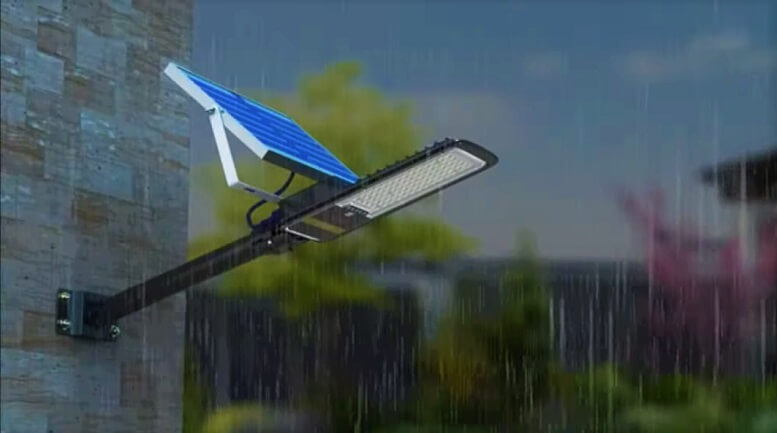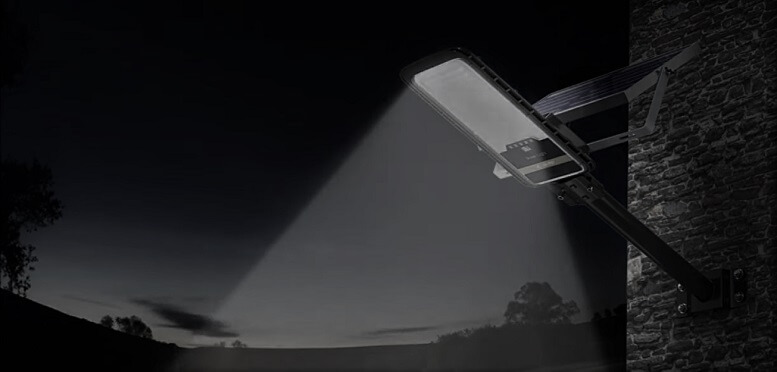Note: This article may contain affiliate links, which means if you make a purchase following our links won’t cost you extra, but we may earn a commission. Learn more
When you buy solar lights, you expect them to work for a long time without any problems. But sometimes, after a rainstorm, you may find that your solar lights are no longer working. This can be frustrating, especially if you paid a lot of money for the lights.
However, solar lights can stop working for a variety of reasons. But don’t despair! There are some things you can do to get your solar lights working again after they’ve been rained on. Here are 7 possible causes of why your solar lights may not be working:
1. The batteries are not charged: Solar lights rely on batteries to store energy so that they can operate at night. If the batteries are not sufficiently charged, the lights will not be able to turn on.
2. The Light touched by rainwater: If your solar lights have been touched by rainwater, it can short out the electrical components inside and cause the light to stop working. The best way to prevent this from happening is to keep your solar lights stored in a dry, safe place when they’re not in use.
3. The solar panel is not receiving enough sunlight: Solar lights need direct sunlight in order to charge the batteries. If the solar panel is shaded or obstructed in any way, it will not be able to receive enough sunlight to charge the batteries.
4. The solar panel is dirty: Dust, dirt, and grime can build up on the solar panel and prevent it from receiving enough sunlight. If the solar panel is not cleaned on a regular basis, it will eventually stop working.
5. The batteries are damaged: Batteries can be damaged by excessive heat or cold, so it is important to store them in a temperature-controlled environment. If the batteries are damaged, they will not be able to hold a charge and the solar lights will not work.
6. The light fixture is damaged: The light fixture can be damaged by weather, insects, or other creatures. If the light fixture is damaged, the light will not be able to turn on.
7. The light bulb is burned out: Solar lights use LED bulbs, which have a very long lifespan. However, the bulbs can eventually burn out and will need to be replaced.
Related Post: Pros And Cons Of Solar Battery Storage
Does Rain Ruin Solar Lights?
No, rain does not ruin solar lights. In fact, solar lights are designed to withstand all weather conditions, including rain, snow, and ice.
So, if your solar lights are not as bright as they used to be, it might not be because of the rain. There are other factors that can affect the brightness of solar lights, such as the number of hours of sunlight they are getting each day and the angle of the sun.
Why Do My Solar Lights Go Out When It Rains?
It’s not actually for rain specifically, but more because of the moisture and humidity that is in the air. When the solar lights are first turned on, they charge up by absorbing the sunlight through the solar panel.
Once it reaches full charge, it will stay on until the batteries run out of power. However, if it rains or if there is a lot of moisture in the air, it can cause the solar lights to go out prematurely.

How Do You Get Solar Lights to Work Again?
Assuming you’re referring to solar-powered garden lights, there are a few things you can do to get them working again.
First, check the batteries. If they’re dead, simply replace them with new ones.
If the batteries are fine, then make sure that the solar panel is clean and free of debris. Sometimes dirt or leaves can block sunlight from reaching the panel, preventing it from charging the batteries.
Another possibility is that the LED bulb has burned out and needs to be replaced.
How Do You Reset a Solar Light?
Assuming you are talking about solar-powered lights that are common in many gardens:
To reset most solar lights, you will need to remove the batteries. Once the batteries are removed, press and hold the on/off button for about 15 seconds.
This should reset the light. If the light does not turn on after doing this, it may be time to replace the batteries.
Why are My Brand New Solar Lights Not Working
If you’ve just purchased solar lights and they’re not working, check to make sure that the batteries are properly installed and charged. If they are, then the next thing to check is whether or not the solar panel is receiving direct sunlight.
If it’s not, then the lights won’t work. And, if all else fails, contact the manufacturer for assistance.
Fixing Solar Lights With Nail Polish
If your solar lights have stopped working, there is an easy fix that you can try at home. All you need is a bottle of clear nail polish and a cotton swab. First, locate the solar panel on the light.
You will see a small metal tab that makes contact with the battery. This tab can become corroded over time, preventing the flow of electricity. Using the cotton swab, apply a generous amount of clear nail polish to this contact point.
Allow it to dry completely before testing the light. In most cases, this simple fix will get your solar lights working again!
Solar Lights Not Working at Night
If your solar lights aren’t working at night, there are a few things you can check to see what the problem might be.
First, make sure that the lights are receiving enough sunlight during the day. If they’re not getting enough sun, they won’t have enough power to last through the night.
Second, check to see if the batteries are charged. If they’re not, charge them for a few hours before testing the lights again.
Third, if the problem persists, it’s possible that the solar panel itself is faulty and will need to be replaced.

How to Fix Solar Light Sensor?
It’s no secret that solar lights are becoming increasingly popular. Not only are they environmentally friendly, but they’re also very easy to install and maintain. One of the most common issues with solar lights is that the sensor may stop working properly after a while.
If this happens, At first check to make sure that the batteries are still good. If they’ve run out of power, simply replace them and see if that does the trick.
If the problem persists, then it’s likely that something is blocking the sensor. This could be anything from dirt or debris to leaves or even snow. Simply clean off the sensor and see if that solves the problem.
If neither of these solutions works, then it’s possible that the sensor itself is damaged and needs to be replaced.
Fortunately, this isn’t too difficult to do – simply remove the old sensor and install a new one in its place. With any luck, your solar lights will be back up and running in no time!
Conclusion
If you’ve ever had your solar lights go out after a rainstorm, you’re not alone. It’s a common problem that can be easily fixed. But the rain isn’t the main culprit here. Clean off any dirt or debris that may have accumulated on it, and make sure it’s in a sunny spot where it can get direct sunlight.
If all else fails, you may need to buy a new solar panel.